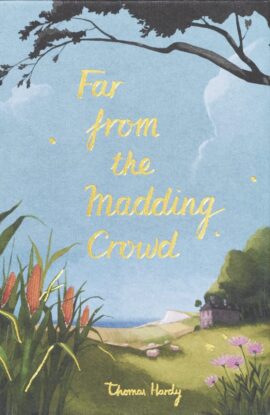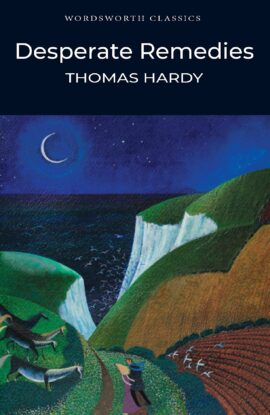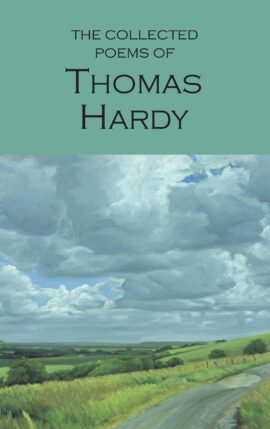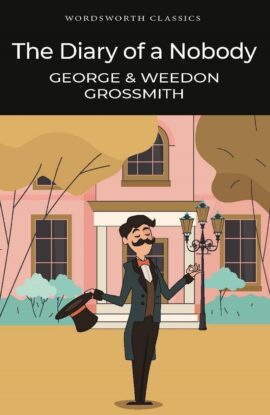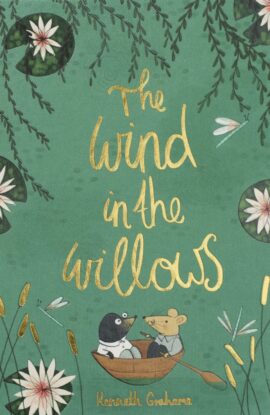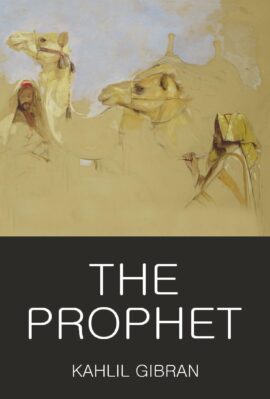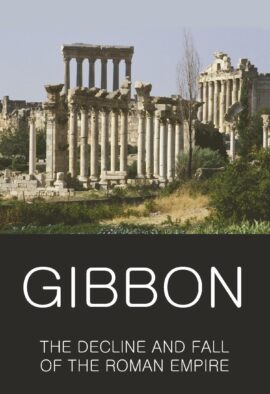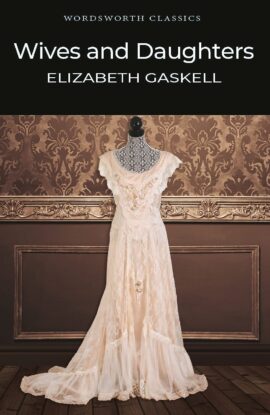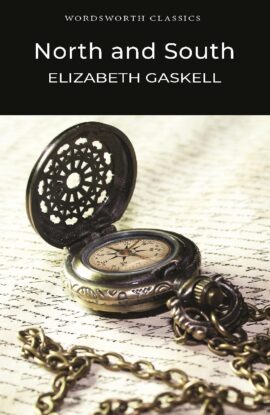Affichage de 337–348 sur 1221 résultatsTrié par popularité
Far from the Madding Crowd (Wordsworth Collector’s Editions)
Far from the Madding Crowd by Thomas Hardy is perhaps the most pastoral of Hardy's Wessex novels. It tells the story of the young farmer Gabriel Oak and his love for and pursuit of the elusive Bathsheba Everdene, whose wayward nature leads her to both tragedy and true love.It tells of the dashing Sergeant Troy whose rakish philosophy of life was '...the past was yesterday: never, the day after', and lastly, of the introverted and reclusive gentleman farmer, Mr Boldwood, whose love fills him with '...a fearful sense of exposure', when he first sets eyes on Bathsheba.The background of this tale is the Wessex countryside in all its moods, contriving to make it one of the most English of great English novels.
Desperate Remedies (Wordsworth Classics)
Desperate Remedies by Thomas Hardy. With an introduction by Michael Irwin. The young Thomas Hardy was working as an architect, but fired with literary ambition, tried for years to get into print. He finally succeeded with Desperate Remedies, a sensation novel in the mode of Wilkie Collins. Here was a racy specimen of the genre, replete with sudden death, dark mysteries, intriguing clues, fire and storm, flight and pursuit. Anyone who enjoys The Woman in White is likely to enjoy Desperate Remedies. But that is only half the story. Hardy contrived also, in this unlikely context, to give a first airing to various of the ideas and technical experiments which were to characterise his later fiction. The result is an exhilaratingly uneven work: at any point in the narrative some brilliant passage of description or metaphor may burst out like a firework. Desperate Remedies can be relished both for what it is and for what it promises.
Collected Poems of Thomas Hardy ((Wordsworth Poetry Library))
Collected Poems of Thomas Hardy by Thomas Hardy. Thomas Hardy started composing poetry in the heyday of Tennyson and Browning. He was still writing with unimpaired power sixty years later, when Eliot and Yeats were the leading names in the field. His extraordinary stamina and a consistent individuality of style and vision made him a survivor, immune to literary fashion. At the start of the twenty-first century his reputation stands higher than it ever did, even in his own lifetime. He is now recognised not only as a great poet, but as one who is widely loved. He speaks with directness, humanity and humour to scholarly or ordinary readers alike.
The Well of Loneliness (Wordsworth Classics)
The Well of Loneliness by Radclyffe Hall. 'As a man loved a woman, that was how I loved...It was good, good, good...' Stephen is an ideal child of aristocratic parents - a fencer, a horse rider and a keen scholar. Stephen grows to be a war hero, a bestselling writer and a loyal, protective lover. But Stephen is a woman, and her lovers are women. As her ambitions drive her, and society confines her, Stephen is forced into desperate actions. The Well of Loneliness was banned for obscenity when published in 1928. It became an international bestseller, and for decades was the single most famous lesbian novel. It has influenced how love between women is understood, for the twentieth century and beyond.
Diary of a Nobody (Wordsworth Classics)
Diary of a Nobody by George Grossmith. The diary is that of a man who acknowledges that he is not a "Somebody" - Charles Pooter of 'The Laurels', Brickfield Terrace, Holloway, a clerk in the city of London - and it chronicles in hilarious detail the everyday life of the lower middle class during the Great Victorian age.
Wind in the Willows (Wordsworth Collector’s Editions)
Wind in the Willows by Kenneth Grahame. Far from fading with time, Kenneth Grahame's classic tale of fantasy has attracted a growing audience in each generation. Rat, Mole, Badger and the preposterous Mr Toad (with his 'Poop-poop-poop' road-hogging new motor-car), have brought delight to many through the years with their odd adventures on and by the river, and at the imposing residence of Toad Hall. Grahame's book was later dramatised by A. A. Milne, and became a perennial Christmas favourite, as Toad of Toad Hall. It continues to enchant and, above all perhaps, inspire great affection. About our Collector's Editions: These new compact hardbacks will be cloth-bound, with matching coloured end papers, embossed gold and coloured blocking to enhance their beautiful, bespoke cover illustrations. The trim page size is 178 x 129mm.
Faust – A Tragedy in Two Parts and the Urfaust (Wordsworth Classics of World Literature)
Goethe's Faust is a classic of European literature. Based on the fable of the man who traded his soul for superhuman powers and knowledge, it became the life's work of Germany's greatest poet. Beginning with an intriguing wager between God and Satan, it charts the life of a deeply flawed individual, his struggle against the nihilism of his diabolical companion Mephistopheles. Part One presents Faust's pact with the Devil and the harrowing tragedy of his love affair with the young Gretchen. Part Two shows Faust's experience in the world of public affairs, including his encounter with Helen of Troy, the emblem of classical beauty and culture. The whole is a symbolic and panoramic commentary on the human condition and on modern European history and civilisation. This new translation of both parts of Faust preserves the poetic character of the original, its tragic pathos and hilarious comedy. In addition, John Williams has translated the Urfaust, a fascinating glimpse into the young Goethe's imagination, and a selection from the draft scenarios for the Walpurgis Night witches' sabbath - material so ribald and blasphemous that Goethe did not dare publish it.
Robin Hood (Wordsworth Exclusive Collection)
Robin Hood by Henry Gilbert is the best loved outlaw of all time. In this edition, Henry Gilbert tells of the adventures of the Merry Men of Sherwood Forest - Robin himself, Little John, Friar Tuck, Will Scarlet, and Alan-a-Dale, as well as Maid Marian, good King Richard, and Robin's deadly enemies Guy of Gisborne and the evil Sheriff of Nottingham.
THE PROPHET ( Wordsworth Classics of World Literature )
The Prophet represents the acme of Kahlil Gibran's achievement. Writing in English, Gibran adopted the tone and cadence of King James I's Bible, fusing his personalised Christian philosophy with a spirit and oriental wisdom that derives from the richly mixed influences of his native Lebanon. His language has a breath-taking beauty. Before returning to his birthplace, Almustafa, the 'prophet', is asked for guidance by the people of Orphalese. His words, redolent with love and understanding, call for universal unity, and affirm Gibran's certainty of the correlated nature of all existence, and of reincarnation. The Prophet has never lost its immediate appeal and has become a ubiquitous touchstone of spiritual literature.
Decline & Fall of the Roman Empire (Wordsworth Classics of World Literature)
Gibbon's Decline and Fall of the Roman Empire, published between 1776 and 1788, is the undisputed masterpiece of English historical writing which can only perish with the language itself. Its length alone is a measure of its monumental quality: seventy-one chapters, of which twenty-eight appear in full in this edition. With style, learning and wit, Gibbon takes the reader through the history of Europe from the second century AD to the fall of Constantinople in 1453 - an enthralling account by 'the greatest of the historians of the Enlightenment'. This edition includes Gibbon's footnotes and quotations, here translated for the first time, together with brief explanatory comments, a precis of the chapters not included, 16 maps, a glossary, and a list of emperors.
Wives and Daughters (Wordsworth Classics)
With an Introduction and Notes by Dinny Thorold, University of WestminsterGaskell's last novel, widely considered her masterpiece, follows the fortunes of two families in nineteenth century rural England. At its core are family relationships - father, daughter and step-mother, father and sons, father and step-daughter - all tested and strained by the romantic entanglements that ensue.Despite its underlying seriousness, the prevailing tone is one of comedy. Gaskell vividly portrays the world of the late 1820s and the forces of change within it, and her vision is always humane and progressive.The story is full of acute observation and sympathetic character-study: the feudal squire clinging to old values, his naturalist son welcoming the new world of science, the local doctor and his scheming second wife, the two girls brought together by their parent's marriage...
North and South (Wordsworth Classics)
With an Introduction and Notes by Dr Patsy Stoneman, University of Hull.Set in the mid-19th century, and written from the author's first-hand experience, North and South follows the story of the heroine's movement from the tranquil but moribund ways of southern England to the vital but turbulent north. Elizabeth Gaskell's skilful narrative uses an unusual love story to show how personal and public lives were woven together in a newly industrial society.This is a tale of hard-won triumphs - of rational thought over prejudice and of humane care over blind deference to the market. Readers in the twenty-first century will find themselves absorbed as this Victorian novel traces the origins of problems and possibilities which are still challenging a hundred and fifty years later: the complex relationships, public and private, between men and women of different classes.









